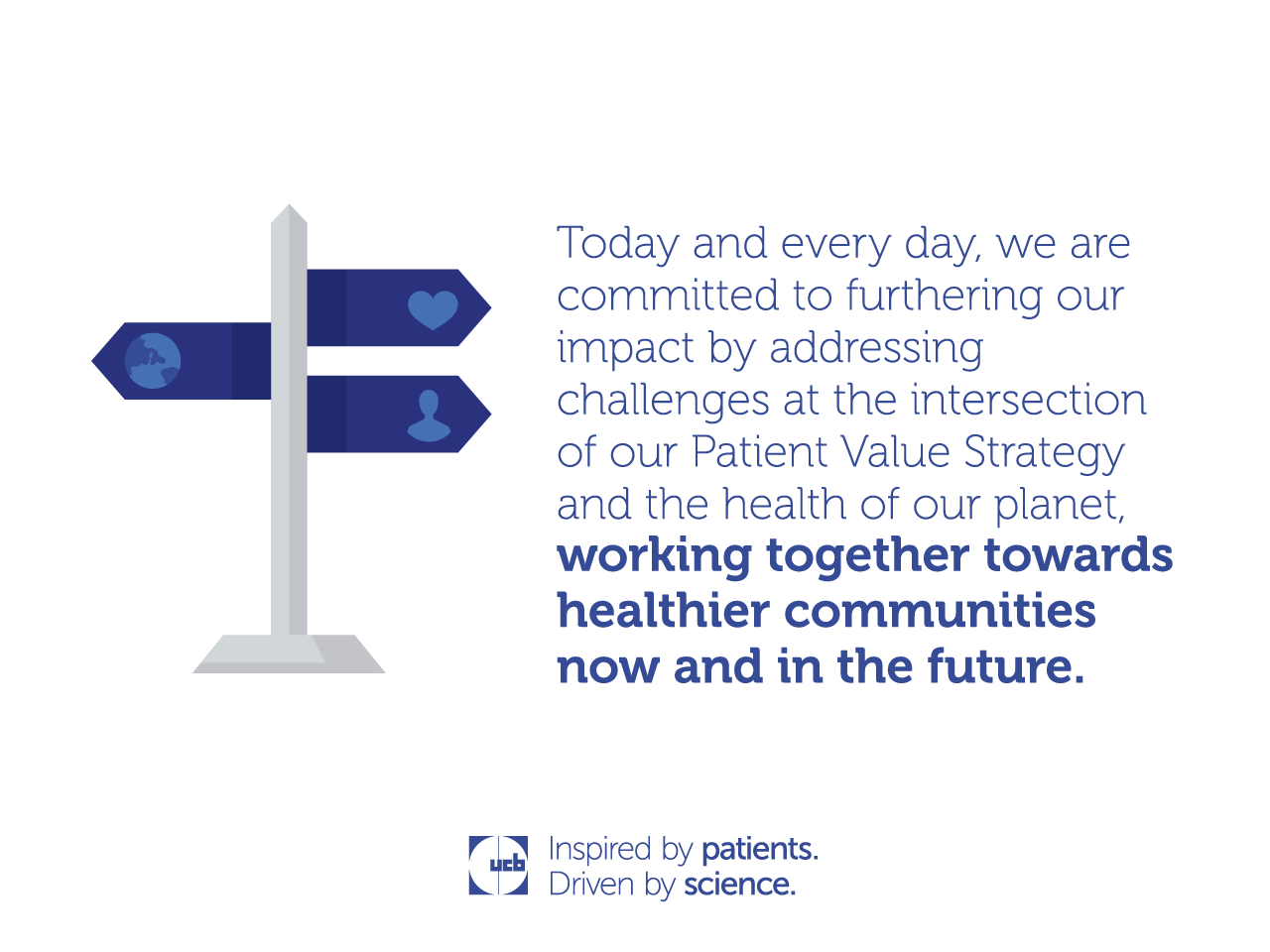
Sustainability is our business approach at UCB. Our goal is to contribute to the transition toward a low-carbon and green economy to protect the planet by developing and producing medicines for people with severe diseases in the most environmentally sustainable way possible. This means reducing our carbon footprint, water consumption, and waste production across the company. This Earth Day, we are highlighting how we’ve progressed in our goal to reduce our local and global environmental impact by 2030, despite the unprecedented events of 2020.
More than five years ago, we laid out our 2030 Green Goals to minimize our environmental footprint across business activities and operations. By 2030, our ambition is to reduce Green House Gas CO2 (GHG) emissions by 35%, our water withdrawal by 20%, and waste production by 25%. In 2020, we saw a 19% reduction in energy consumption, a 30% reduction in water withdrawal, and a 38% reduction in our waste production. Our carbon dioxide (CO2) emissions due to our car fleet were reduced by 29%, while business air travel was reduced by 87%. We recognize this is mainly explained by the dramatic reduction in business travel due to the ongoing COVID-19 pandemic.
Though this last year looked a little different for our business and employees, we implemented initiatives to minimize our environmental footprint at our U.S. site locations, and in our homes while working in a remote environment. Here are a few things we’re doing:
- We are installing 25+ electric vehicle (E.V.) charging stations on our campus.
- We use recycling streams and compactors for recyclable waste.
- Our Atlanta campus is powered by 100 percent green energy generated by solar/wind renewable sources.
- We are replacing single plastic/paper products with eco-friendly products at our new office.
- We use recycling streams and compactors for recyclable waste.
- We are using LED lighting throughout our facility and motion sensor lighting in conference rooms.
- We replaced single plastic/paper products with eco-friendly products.
- We have a public transportation program in place to assist employees in reducing emissions from car travel to and from the office.
- We are implementing reverse osmosis water usage.
- We adopted dishwashing and use of non-disposable utensils, dishes, and glasses.
- We launched a new recycling campaign across our facilities.
Additionally, we are proud to have employees all over the U.S. who choose to do their part in implementing sustainability in their homes. Here are a few examples from across our U.S. teams:
- Sarah Hart, Executive Assistant, Corporate Affairs who usually works in our Atlanta office, implements sustainability at home by recycling all batteries and chargers, composting and putting vegetable scraps in her garden, and using a low-flow shower head.
- Katelyn Snider, Manager, U.S. Communications - Public Affairs & Digital, usually works from our D.C. office, and relies mainly on public transportation, walking, and biking for daily transportation, as well as implements sustainability at home through reusable supplies and composting.
- Jessica Williamson, Protein Production Lead, works in our Boston office and reduces single-use plastics at home by using refillable containers for her cleaning supplies that she buys in bulk from a local cleaning supply shop. She also uses low waste products such as chewable toothpaste tablets as toothpaste tubes aren’t recyclable.
- Joe Lotus, State Government Relations & Public Affairs Lead, who works remotely in the field uses a Nest thermostat for temperature regulation at home and travels in his company-issued hybrid vehicle for business.
Today and every day, we are committed to furthering our impact by addressing challenges at the intersection of our Patient Value Strategy and the health of our planet, working together towards healthier communities now and in the future.
Choose Country
- Global Site – English
- Australia – English
- België – Engels
- Belgique – Anglais
- Brasil – Português
- България – Български
- Canada – English
- Canada – Français
- 中国 – 中文
- Česká Republika – Angličtina
- Danmark – Engelsk
- Deutschland – Deutsch
- France – Français
- España – Español
- Ελλάδα – Ελληνικά
- India – English
- Ireland – English
- Italia – Inglese
- 日本 – 日本語
- Казахстан – ағылшын тілі
- 한국 – 한국어
- Luxembourg – Anglais
- Luxemburg – Engels
- Magyarország – Angol
- México & Latinoamérica – Español
- Nederland – Engels
- New Zeeland – English
- Norge – Engelsk
- Österreich – Deutsch
- Polska – Polski
- Portugal – Inglês
- România – Engleză
- Россия – Русский
- Slovensko – Anglický
- Suomi – Englanti
- Sverige – Engelska
- Schweiz – Deutsch
- Suisse – Français
- Türkiye – Türkçe
- Україна – Англійська
- United Kingdom – English
- U.S.A. – English


